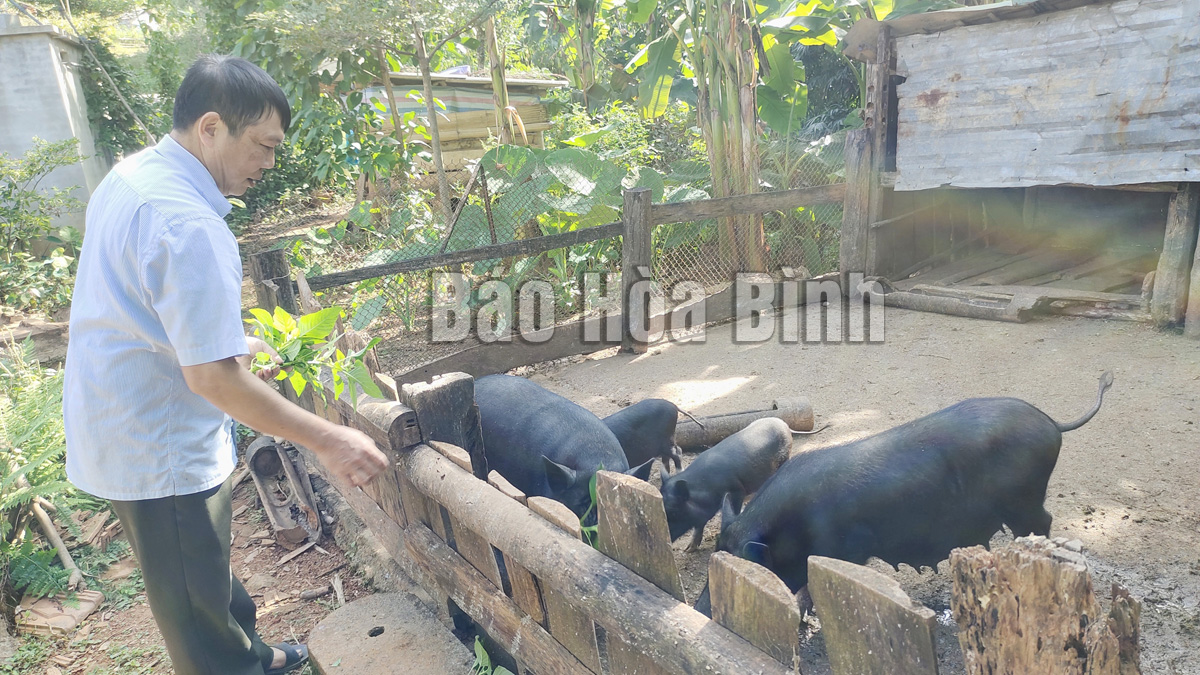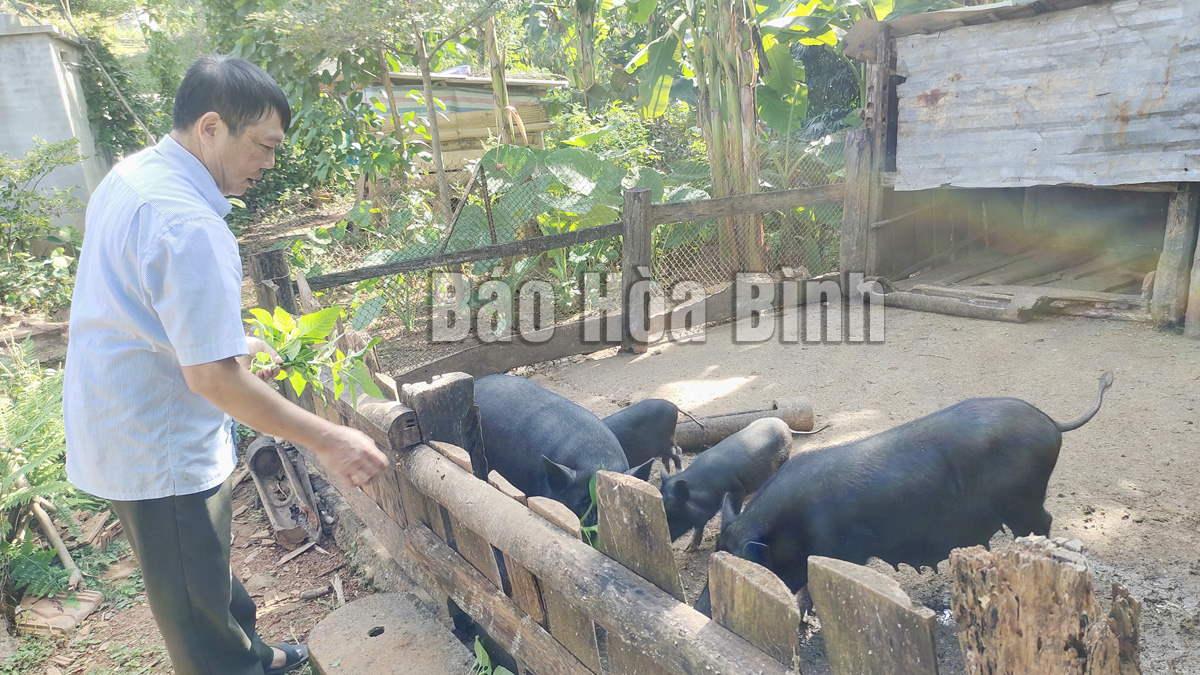
(HBO) - Hoa Binh province has raised locally-originated pig species with high meat quality. This is also a specialty purchased by many people every Tet (Lunar New Year) holiday.

Native black pig raised in mountainous areas in Hoa
Binh province. Photo taken in Thach Yen commune (Cao Phong).
Statistics show that the province is currently raising about
30,000 heads of indigenous pigs. Among the 22 indigenous pig species announced
in Vietnam, Hoa Binh owns two, namely Man and Ban. Man pig is mainly raised in
districts such as Cao Phong, Ky Son (now Hoa Binh city), Tan Lac, Da Bac and
Kim Boi. Meanwhile, Ban pig is distributed in Cao Phong, Tan Lac, Lac Son, Mai
Chau and Da Bac.
With high economic efficiency, native pig farming is being
expanded in some districts, including Da Bac. Man pig breed is popularly raised
in this mountainous district. This is a small-sized and slow-growing breed. It
often takes from one to three years for each pig to be sold, so the pork is delicious.
Therefore, the price is quite high, and local people often sell them to traders
on holidays, especially Tet.
With the development potential of indigenous pig farming, in
late October 2022, the provincial Cooperative Alliance held a supply-demand
connectivity conference with an aim to develop the native pig husbandry.
According to statistics, the whole province has 14 cooperatives raising
indigenous pigs with a scale of 4,500 heads per year. The figure is expected to
increase to 5,500 - 6,000 in 2023.
At this conference, cooperatives agreed to establish Hoa
Binh Indigenous Pig Cooperative Alliance, thus helping form a chain of links
for sustainable development of farming models. The alliance will cooperate with
the Vietnam Cooperative Alliance to expand, build and protect the market./.
According to data from the Hoa Binh Provincial Party Committee, the industrial production index for the first six months of 2025 is estimated to have increased by 20% compared to the same period last year. This marks the highest year-on-year growth rate for this period since 2020.
In the first six months of 2025, Hoa Binh province’s export turnover was estimated at 1.145 billion USD, marking an 18.11% increase compared to the same period in 2024. Import turnover was estimated at $ 804 million, a 17.15% increase, which helped the province maintain a positive trade balance.
The lives of the ethnic minority farmers in Tan Lac district have gradually improved thanks to the new directions in agricultural production. This is a testament to the collective strength fostered through the professional associations and groups implemented by various levels of the district’s Farmers’ Union.
With the motto the "product quality comes first,” after nearly one year of establishment and operation, Muong village’s Clean Food Agricultural and Commercial Cooperative, located in Cau Hamlet, Hung Son Commune (Kim Boi district), has launched reputable, high-quality agricultural products to the market that are well-received by consumers. The products such as Muong village’s pork sausage, salt-cured chicken, and salt-cured pork hocks have gradually carved out a place in the market and they are on the path to obtaining the OCOP certification.
In the past, the phrase "bumper harvest, rock-bottom prices" was a familiar refrain for Vietnamese farmers engaged in fragmented, small-scale agriculture. But today, a new spirit is emerging across rural areas of Hoa Binh province - one of collaboration, organisation, and collective economic models that provide a stable foundation for production.
Maintaining growing area codes and packing facility codes in accordance with regulations is a mandatory requirement for agricultural products to be eligible for export. Recently, the Department of Agriculture and Environment of Hoa Binh province has intensified technical supervision of designated farming areas and packing facilities to safeguard the "green passport" that enables its products to access international markets.



